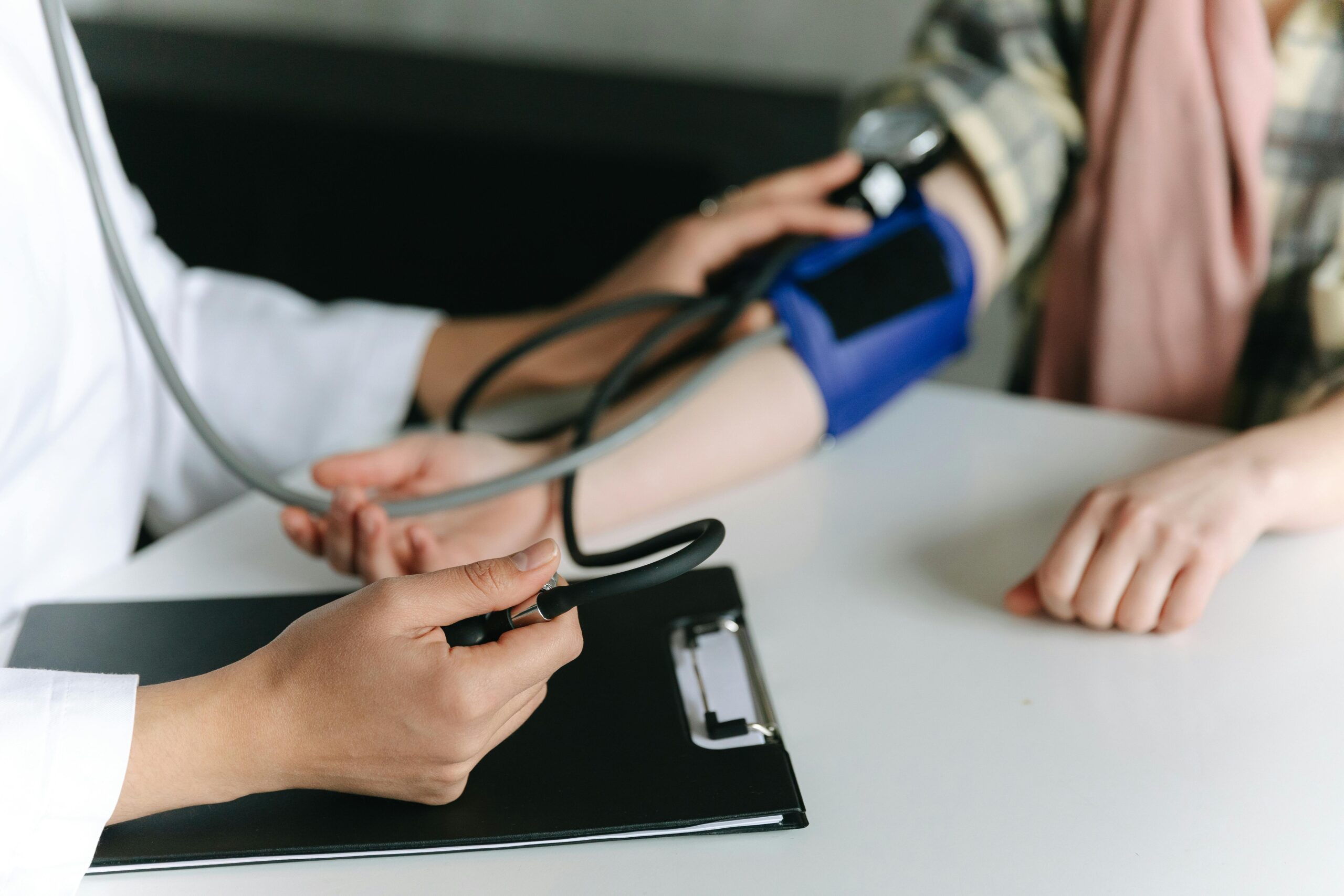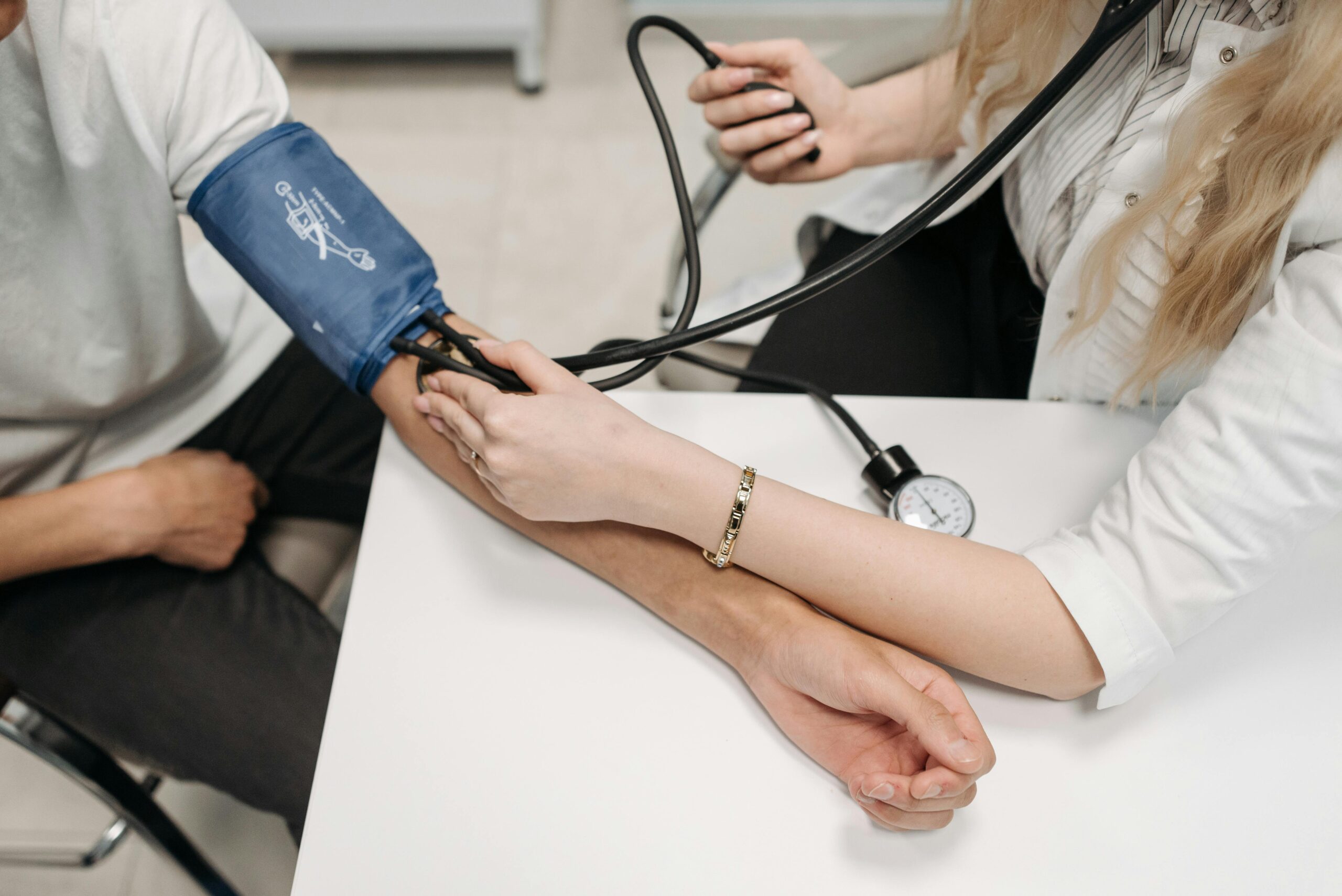Understanding Hypertension: The Silent Killer and How to Manage It
Introduction

Hypertension, commonly referred to as high blood pressure, is a health condition that affects millions of people worldwide. Often dubbed the “silent killer,” hypertension frequently goes unnoticed until it brings about severe complications. In this blog post, we’ll explore what hypertension is, its causes, symptoms, and, most importantly, effective management strategies to help you maintain a healthy blood pressure.
What is Hypertension?
Hypertension occurs when the force of the blood against the artery walls is consistently too high. Blood pressure is measured in millimeters of mercury (mmHg) and is presented with two numbers: the systolic pressure (when the heart beats) and the diastolic pressure (when the heart is at rest). A normal reading is typically around 120/80 mmHg. A reading of 130/80 mmHg or higher indicates hypertension.
Types of Hypertension
- Primary (Essential) Hypertension: This is the most common type, developing gradually over many years without a specific identifiable cause.
- Secondary Hypertension: This type is linked to an underlying condition like kidney disease, hormonal disorders, or certain medications. It often appears suddenly and can be more severe.
Risk Factors: Who is at Risk?
Understanding your risk factors can help you take proactive steps to prevent hypertension:
- Age: The risk increases as you get older.
- Family History: A family history of hypertension raises your risk.
- Obesity: Excess weight contributes significantly to increased blood pressure.
- Physical Inactivity: A sedentary lifestyle is a major contributor to weight gain and hypertension.
- Tobacco Use: Smoking can damage blood vessels, raising blood pressure.
- High Sodium Intake: Consuming too much salt can cause your body to hold onto water, increasing blood pressure.
- Excessive Alcohol Consumption: Drinking large amounts of alcohol can lead to hypertension.
- Stress: Chronic stress may contribute to increases in blood pressure.
Recognizing the Symptoms
Hypertension is often asymptomatic, making regular monitoring essential. However, some may experience:
- Severe headaches
- Shortness of breath
- Nosebleeds
- Dizziness
These symptoms often occur only when blood pressure levels reach dangerously high levels, underscoring the importance of regular health check-ups.

Managing Hypertension: Tips for a Healthier You
- Adopt a Healthy Diet: Consider the DASH (Dietary Approaches to Stop Hypertension) diet, which emphasizes vegetables, fruits, whole grains, and lean proteins while reducing sugar and saturated fat.
- Exercise Regularly: Aim for at least 150 minutes of moderate aerobic activity or 75 minutes of vigorous activity each week. Activities like walking, jogging, swimming, or cycling can effectively lower blood pressure.
- Maintain a Healthy Weight: Losing even a small amount of weight can help lower blood pressure.
- Limit Salt Intake: Strive to consume less than 2,300 mg of sodium per day, or 1,500 mg for those at risk of high blood pressure.
- Limit Alcohol: Moderation is key – up to one drink per day for women and two drinks per day for men.
- Manage Stress: Practice relaxation techniques like meditation, deep breathing, and yoga to help reduce stress levels.
- Monitor Blood Pressure: Regular check-ups will help keep your blood pressure in check. Home monitoring can also be beneficial.
- Medication: Consult with your healthcare provider about medication options if lifestyle changes alone aren’t enough to manage your blood pressure.
Conclusion
Hypertension is a common yet serious health condition that requires proactive management. By understanding the risk factors, recognizing the symptoms, and adopting a healthy lifestyle, you can reduce your risk of hypertension and promote overall health. Remember, it’s always important to consult with healthcare professionals for personalized advice and management strategies.
Stay informed, stay healthy, and take control of your blood pressure today!
Call to Action: If you found this blog useful, consider sharing it with friends and family. Also, schedule a check-up with your healthcare provider or Brims Hospitals to discuss your blood pressure and what steps you can take to maintain a healthy lifestyle.